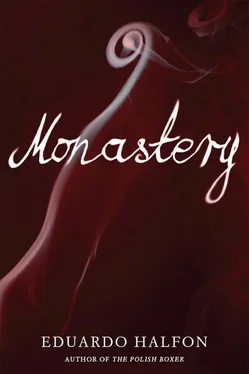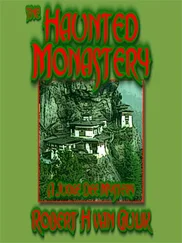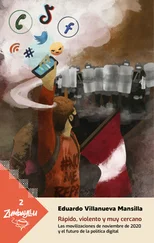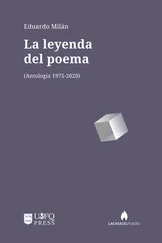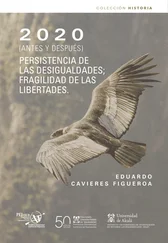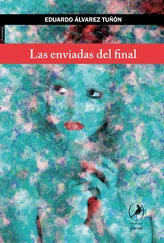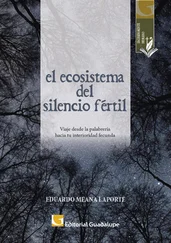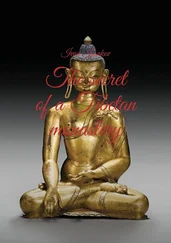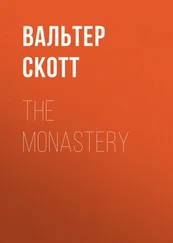Tamara gently roused me with an elbow. She offered me the joint and I took it with no hesitation, almost with relief. Regardless of its name, she said, accelerating sharply into a curve, it is what it is.
THEN EVERYTHING WAS SAND. The undulating landscape. The olive trees. The date palms. The Bedouins and camels on the side of the road. The sky and the clouds and maybe even the wind. As though we were making our way through a watercolor in which everything had been painted with the same sandy brush, on the same sandy canvas, in the same sandy color, but in endless tones and hues. Including us.
TAKE OFF YOUR CLOTHES.
Tamara stood in front of me. She raised her arms, peeled off her white linen blouse, and cast it to one side. She kicked once, kicked again, and her leather sandals landed on top of the blouse. She pulled down her khaki shorts, slowly, and tossed those too on top of the blouse. Take off your clothes, she commanded again, her whole body smiling in a red bikini, the freckles on her face sparkling in the sun. I began to sweat. I stuck my hands into my pants pocket. The modern bikini was invented by a French engineer, I stammered, my voice tight and idiotic, or at least to me it sounded tight and idiotic in that vast desert. By Louis Réard. In 1946. Tamara frowned. My hand unexpectedly touched a slip of paper. Réard took the name from Bikini Atoll, I blathered, the slip of paper clenched in my right fist, my right fist clenched in my pants pocket. An atoll in the middle of the Pacific Ocean, I said, where that same year the Americans carried out nuclear testing. Did you know that? I clenched the paper tighter, contemplating the shape of her legs and hips, the smooth curve of her belly, the hint of her nipples — round or pointy? pink or vermilion or translucent violet? — through the fabric of her red bikini top. Be quiet now, Eduardo, and take off your clothes. Her smile was emphatic, categorical. I assumed a slight stutter (as a friend suggested I do, during moments of crisis) and started to babble some excuse about my bathing suit, and what a shame that I didn’t have it with me. Look in the suitcase, she said, turning her freckled back to me, in the backseat, she added, her feet already in the water, and you’ll find two towels and a bathing suit for you. I didn’t want to ask whose bathing suit it was. I didn’t want to know. Best not to know. I stood still for a few seconds, the paper held tightly in my hand, watching her step like a goddess into the indigo blue sea.
WE WERE FLOATING ALL ALONE. There was nobody else there. The water was hot and oily and smelled strongly of sulfur. I was suddenly jolted by an unbearable stinging on the tip of my penis. I thought of the hash. Tamara, watching my face, as though awaiting my reaction, laughed. It burns down there, right? she asked splashing around and laughing some more. It’s the salt, she said. Something the guidebooks don’t tell you. It’ll pass. We were floating close to each other without actually touching. She told me that although she loved the Dead Sea, she detested the hordes of tourists. Years ago, with some girlfriends, she’d stumbled upon this tiny private beach. She tried to come regularly, because the salt was very good for your skin, the salt was very good for many things. Smiling, rubbing invisible crystals between her fingers, she said that Egyptian priests abstained from salt because they believed it increased sexual desire. Swimming a bit closer, she said that the Romans referred to a man who was in love as salax, which meant in a salted state, and which, she added with a mischievous glint, was the origin of the word salacious. In traditional Japanese theater, before each performance, they used to scatter salt onstage to protect the actors from evil spirits. In Haiti, the only way to break a spell and bring a zombie back to life was with salt. Until 1408, the French salted their babies instead of baptizing them, and the Dutch placed hunks of salt in their children’s cribs, and the Arabs protected their children by putting salt in their hands on the eve of the seventh day after their birth. Old Jews, as in the Book of Ezekiel, sprinkled babies with salt to protect them from the evil eye. According to the Shulchan Arukh, the book of Jewish laws, Jews must touch salt only with their middle and ring fingers, because if a Jew uses his thumb, his children will die, and if a Jew uses his pinkie, he will become poor, and if a Jew uses his index finger, he will become a murderer. For Jews, salt was a pact, and a covenant, and a superstition, and a punishment, and a downfall, and a cornerstone, and a blessing, and a misfortune, and also a secret. She fell silent. I asked her what secret. I asked her how she knew so much about salt, but Tamara just smiled and told me that where we were was the lowest point on earth. Over there, she said, pointing to some tall yellowish rocks, is where some experts believe that Lot’s wife, when she looked back to see the destruction of Sodom, turned into a pillar of salt. And over there, she said, signaling a huge plateau with her eyes, was the biblical fortification of Masada, where an entire population of Jews, rather than surrender to the Romans, committed mass suicide. Tamara took her hand out of the water and sucked a finger. And over there, she said, pointing her just-sucked finger at the mountains beyond the sea, is Jordan. I liked her long pale index finger better than the gray mountains of Jordan. Not far from us, somewhere in that same dead and salty sea, someone’s prayer was already fading.
NO ONE LOOKS DOWN. That’s what struck me on another trip, walking the gray streets of Warsaw on that first afternoon, dressed in a pink coat, still bleary, still wearing the same dirty wrinkled clothes — under that awful, garish pink coat — that I’d traveled from Guatemala in. No one greeted me. No one smiled at me. But no one looked down either. Men and women, young and old, they all turned to stare at me without any sort of judgment in their eyes, without emotion, without curiosity, maybe without even thinking me out of place in pink. As though for Poles looking down were a sign of cowardice. As though for Poles the last one to look down, the last one to blink, was declared winner of the game. But a critical game. An unrelenting game. A game between two blind pedestrians putting their lives on the line without realizing it.
It wasn’t yet four o’clock in the afternoon, but night had fallen. I walked quickly, trying to warm up. I was underdressed or poorly dressed in that pink coat, and remembering that there’s nothing lonelier than watching all the other passengers happily exit the airport and being the only one left standing there, at a still-revolving baggage carousel with not a single suitcase on it, recently landed in a country so foreign and frigid and feeling a nakedness that had nothing to do with clothes, those clothes that I — histrionic pink pedestrian in an abysmally gray city — was now missing and pining for and were lost in some corner of the world.
An airport official had helped me fill out a form. Then he stared at me gravely and told me in very poor English that they’d have the bag sent to my hotel. I began babbling that I’d be at that hotel for only one night, that the following day I’d be traveling by train — and here, mid-sentence, I cut myself off for a second while I measured my words, while I decided in that endless second whether or not to tell the official I’d be traveling by train to Auschwitz; or perhaps while I decided whether or not I’d go by train to Auschwitz, to Block 11 of Auschwitz, where my grandfather had been prisoner, in 1942. Although in part that was why I’d come to Poland — to go to Auschwitz, to see the cell in the basement of Block 11 where my grandfather had been prisoner — the truth is, I didn’t know if in the end I’d board that train bound for the extermination camp and the gas chambers and the crematorium and Block 11 and the cells in the basement where my grandfather had been trained by a boxer, in 1942. I don’t know why I wasn’t convinced I’d go. Fear of Auschwitz? Fear of the word Auschwitz? Fear of traveling by train to Auschwitz? Fear of forming part of that mass of tourists that goes to Auschwitz, that deplorable, sensationalist mass of tourists that one could even say worships the pornography of all things savage? In any case, and without saying something I shouldn’t, fear of something.
Читать дальше
